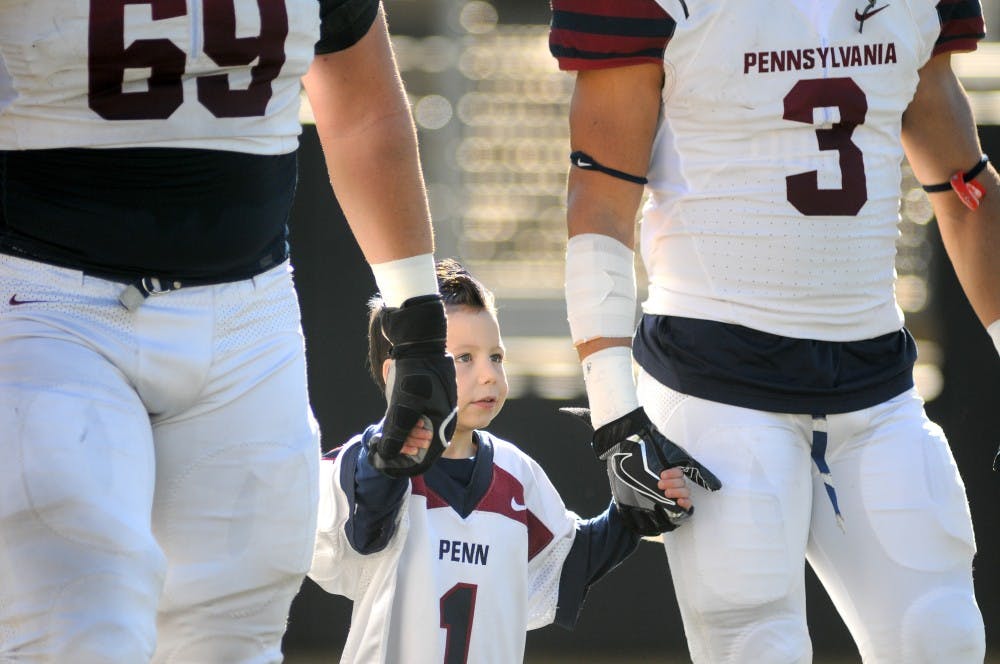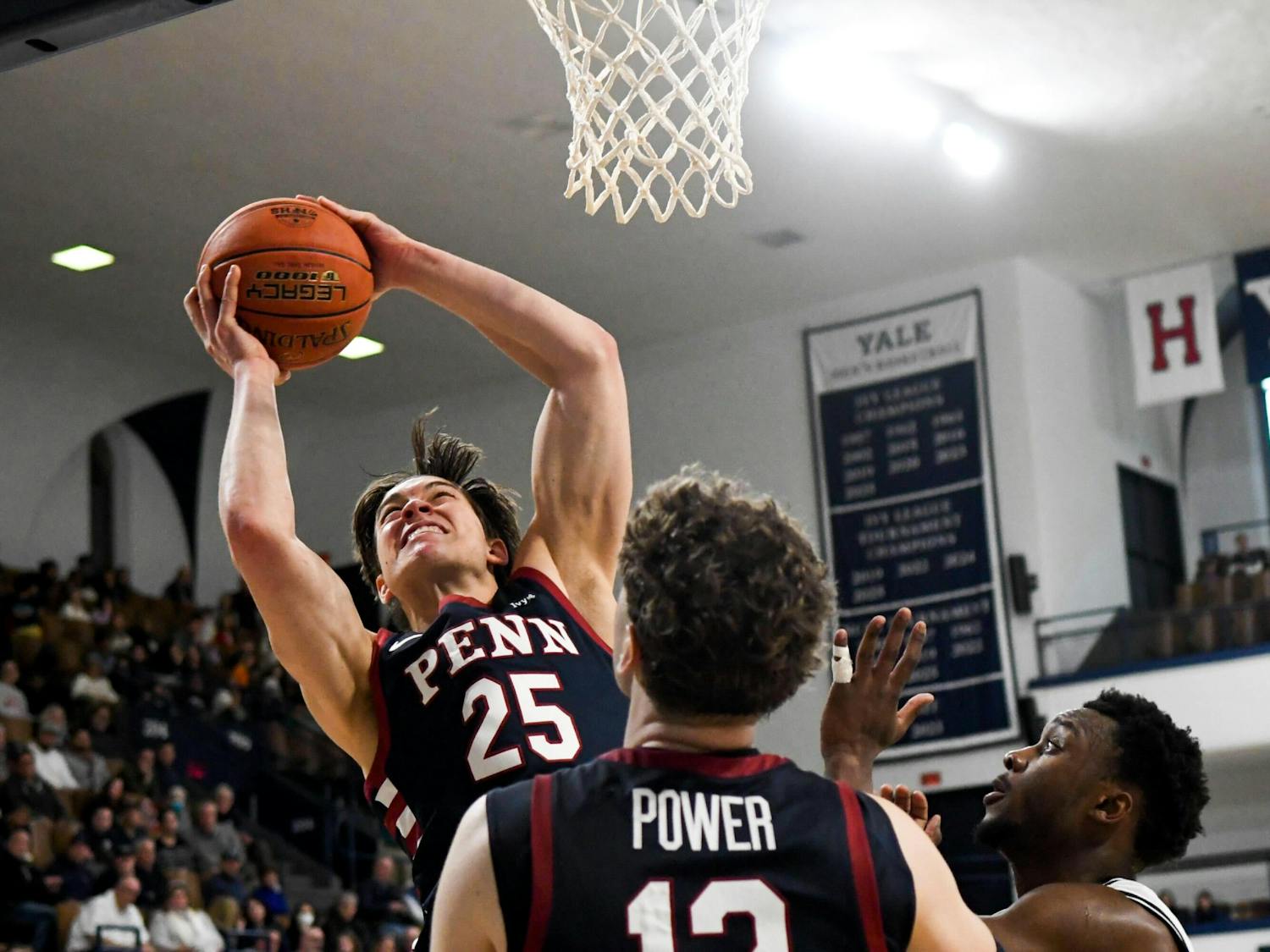In with a win, out with a win.
Penn football’s seniors finished things off the way they came in, winning their final game against Cornell the same way they took down Lafayette to open the 2013 season. Those two endpoints, however, don’t do any justice to the narrative that played out in the intervening four years.
Ray Priore is the only Penn coach to ever win Ivy titles in his first two seasons. He’s the first to do it at any Ivy program since 1971-72. That’s awesome. But that’s not what’s important about the program he’s built.
Yeah, Penn reached its nadir in Al Bagnoli’s final years, stumbling to disappointing 4-6 and 2-8 campaigns. We can talk all we want about Priore re-teaching Penn football how to win. But the cultural change at Franklin Field has been more than that, and that’s why this Ivy title matters.
I jokingly asked Priore after Saturday’s game if he was ready to retire, having already won two titles in two years. His response was more than I was expecting.
“I say this often, ‘If you happen to work in something you love to do, you’ll never work a day in your life.’ And this is not work. This is fun, these are great kids — I love them all, love the Penn family.”
In my time here, football has become of the most dominant teams in Penn Athletics. Priore has been one of the most welcoming and open coaches I’ve had the chance to cover. And this extends beyond just his self-interest in getting a reporter to say nice things about him.
Watch the way Priore has fully embraced the presence of Vhito DeCapria, a boy diagnosed with a rare form of brain cancer in 2014 — now in remission — that the team brought on as a captain prior to last year. Vhito isn’t a mere presence on the sidelines, he’s a vibrant part of the Penn football community.
Priore’s vision is reflected in his own athletes. When sophomore safety Sam Philippi was matched as a bone marrow donor earlier this year — after joining the donor registry through a program the Quakers run every spring — he didn’t even hesitate in deciding to go through with the transplant.
“It’s why we’re in this business. You get a chance to recruit kids, bring them to a place like Penn — that’s a life-changing experience,” he told me shortly after Philippi was matched. “And then when they’re here, we talk all the time about how you can be so impactful in other people’s lives. ... It really, truly puts into perspective our whole mission as coaches, teachers, of what we’re able to do — and also him being willing to do it, on top of it. I think all of our guys understand its their responsibility to make a difference, and he’s done a phenomenal job of it.”
The culture within the program does not simply revolve around lived success. It’s easy for a team to win. It’s hard to sustain it. You have to get players to buy into more than the scheme — it’s more holistic than that.
You’re not going to get a bunch of athletes going pro and, frankly, for the foreseeable future, you’re not going to get a ton of students out to games. Programs have to be about laying the foundation for athletes’ futures beyond the game. They have to be about establishing community and a culture of mutual reinforcement and support. It’s about shaping the lives players will lead once their careers end and their adult lives begin. It’s about putting athletes in a position to make a difference. Priore gets it.
Last weekend was the final game I will watch as a Penn student, the last one I will cover as a journalist. You tend to get reflective about these things. I was thrilled when Penn won. I was lovingly shocked when Nick Demes trucked in a seven-yard rushing touchdown. I was excited when Yale upset Harvard.
I was all of those things because I’m a Penn student, because I love sports, and because it is my job to care. But I was also all of those things because the title seemed like a just reward for the program Priore has built: not one that wins, though win it does, but one that revolves around a sense of shared experience and an understanding of what Penn Athletics is really about.
It brings us back to what Priore said in that press conference on Saturday. It isn’t a job, it’s a passion. It isn’t about winning games, it’s about building men.
As we all celebrated in Ithaca, a lot of boosters and alums were thanking God for Ray Priore.
So was I, but for entirely different reasons.









